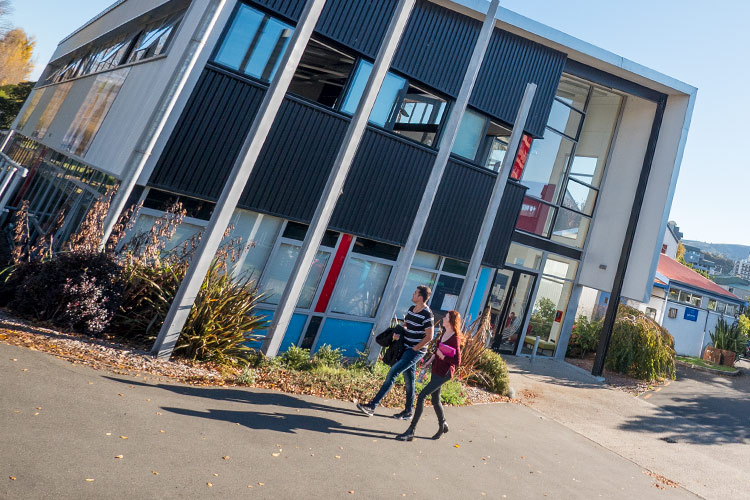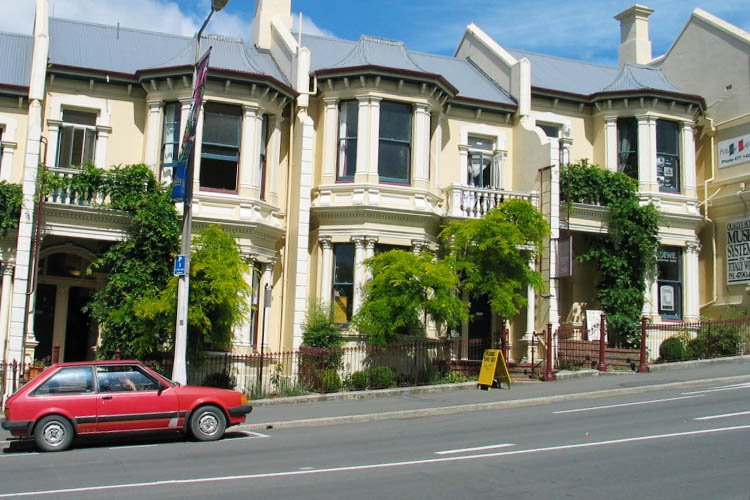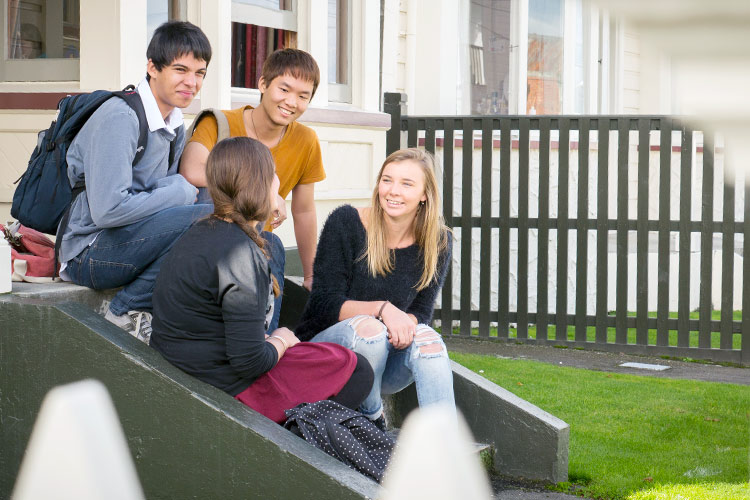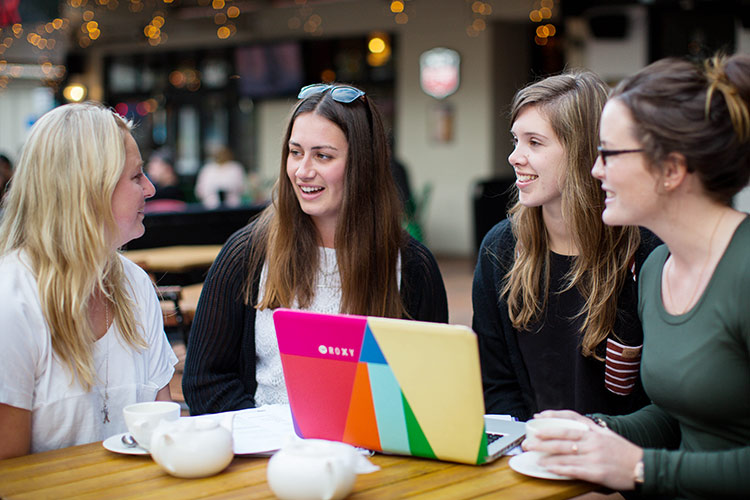Living as a student
Living as a student can be a huge change from your home life. It may be the first time you have left home, or learning to juggle study and home life could be your challenge. This page offers some information about the Otago Polytechnic campuses, living in the campus locations and some tips on finding a place to live and navigate your new study life.
OP Campuses
Otago Polytechnic has three main campuses, Dunedin, Auckland and Central Otago. Many study options are offered online for distance learning as well.
Get to know the campus you will be studying at before you arrive. Check out the information about each campus.
OP Campuses

Places to live
Where you choose to live will depend on which campus you are studying at and how long your programme runs for. When considering your options also think about what will work best for you so that you have a home environment that will support your learning.
Accommodation options
Structured, organised accommodation. Usually all living expenses are covered, including food. Check out OP’s on-campus accommodation Te Pa Tauira.
Stay in the house of a local family, offering a supportive home environment. Find out more about homestays.
Share a house with other learners and be independent in your living arrangements. Flats are usually unfurnished, and costs are divided between the flatmates. Find out more about finding a good flat below.
More information about living options around your campus:

Flatting
Flatting with other students can be a fantastic experience provided you find the right place to live. Here are some tips for finding a great flat:
What to look for in a good flat
• Do all the windows and doors close properly?
• Any holes in the walls, roof, floor, doors etc.?
• How soundproof is the flat, and is it close to neighbours?
• Are fire alarms installed?
• Anything noisy nearby? ie. Pub, busy intersection etc.
• How secure is the flat and do all bedrooms have locks?
• How will you keep warm and how much will it cost you?
• Heat pumps are great if there is insulation
• Fireplaces are good if you can get cheap wood
• High ceilings are hard to heat
• Does it get lots of sun – even in the winter?
• Does it have thermal curtains and good carpets
• Weird smells could indicate dampness – look out for peeling paint and mould
• Is your room big enough to fit and store all your stuff in?
• Do the rooms have enough power points?
• is there plenty of fridge and cupboard space for everyone?
• Will the lounge be big enough for everyone living there?
• How many bathrooms, separate toilets (difficult if in bathroom) or carparks?
• Is there good outdoor space and who’s allowed to stay over?
• Is the washing machine, dishwasher etc. modern and in good working order?
• Is there a good washing line or clothes drier (expensive to use)?
• Check out the bathroom/s for moss our mould – not a good look – walk away!
• How big is the hot water cylinder – will you all get decent showers?
If the rooms or flat are only partly furnished, you may have to purchase, furniture, bed, appliances, kitchen equipment, TV etc.
• The closer to University or Polytechic the dearer the rental
• Further out from campus, the rent will be lower, so you may get a nicer flat for your money. But you will have extra transport costs.
• How well do you know your mates – choose carefully
• Set up your flat rules before signing up for a 12 month lease
• If you have an argument or find you don’t get along with someone, how will you deal with it or a flat “fallout”
• How will you divide up the weekly chores
• Remember, if you want out of your lease, you will still have to pay rent until you get a replacement flat mate – approved by the landlord and other flat mates
Information about flatting

Before you sign
Now that you have found the perfect flat – there are a few things you’ll need to sort out:
-
Leases - Fixed versus periodic lease - Joint versus individual leases
-
Bond and advance rent
-
Condition of the flat
-
Property inspection report
-
Previous tenants’ stuff - has the flat been cleaned for you?
-
Get the name, number and email of the property manager or landlord you will be dealing with throughout your tenancy
-
What are the tenants responsible for?
-
What is the landlord responsible for?
-
Getting things fixed - how do you do this?
-
Make sure you have your own personal contents insurance.
Confused?
If you have questions about tenancy matters, you can call the Deptartment of Building and Housing helpline 0800 TENANCY (0800 83 62 62)
Typical flat budget
Set out a budget before you go flatting so that you have an idea of how much it is going to cost you.
This budget table gives an example of things you need to budget for:
| Monthly | Electricity | $ |
| Phone/Internet | $ | |
| Sky/Netflix etc. | $ | |
| Wheelie bin/rubbish bags | $ | |
| Groceries (could be shared or separate) | $ | |
| Cleaners/toilet/kitchen stuff | $ | |
| TOTAL | $ | |
| Divided by number of flat mates | $ |
Remember to find the actual weekly cost: X your monthly bill by 12 and divide by 52.
Getting around
Dunedin Campus
Parking
Parking around the Dunedin Campus can be very hard to find, especially after 8am. Be prepared to walk a distance to get to your class, so factor in this extra time to be there on time. Consider ride sharing or other transport options for getting to campus.
Public transport
Biking
Riding a bike to class is a great way to get some exercise, and is a sustainable, cheap method of transport. Some buses have bike rakes installed to help with the up-hill return journeys.
Otago Polytechnic has Polybikes - OP bikes and helmuts - which can be used for free. Just pick up a key at Customer Services and you can use them to ride around campus, or further afield, to be returned to campus when you have finished.
Other options for bikes and bike workshops to check out are the Valley Community Workspace and The Crooked Spoke.
Walking
Distances in Dunedin are not huge. From campus you can walk to town in 15 minutes and get some exercise at the same time.

Polybikes can be used for free.
Auckland Campus
Find out more about transport and parking in Auckland.
Central Campus
-
Cromwell and Wanaka are small, relatively flat towns, so it is easy to walk to most places you need to go.
-
There is no public transport, but there are a number of companies running small buses between local towns.
-
Lots of students ride bikes around town, and we do have bikes available to loan to you in Cromwell for a small deposit. It is also easy to buy a cheap bicycle, which we can help you with.
Getting out and about
Getting out and about while you study



